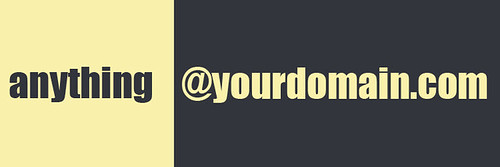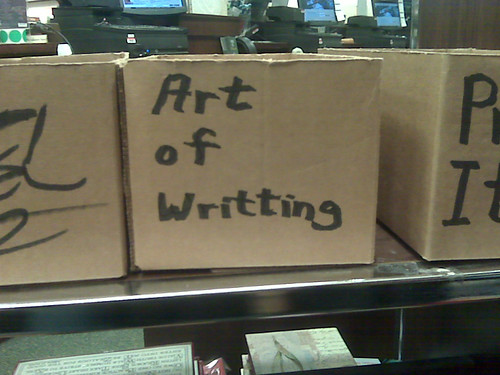Sometimes, with the pressure to do a good job on the big things – close the sale, deliver the code, solve the problem – we overlook the little things along the way, and destroy the very brand we are trying to create.
I knew I had to write this blog thirty minutes ago when I received an email asking advice on a professional matter from bigbearsbooty@***. Come on! As a professional, would you open this email? Hell no! I only did ‘cause I’m a sick puppy who suffers from recurring Work Avoidance Syndrome on Friday mornings.
Impressions are everywhere
 Written communication leaves an indelible impression that you can’t edit once the email leaves your desktop; and email has turned all of us – every professional in the world – into a writer. Problem is, a majority of professionals are damaging the validity of their overall brand by making one or more of these really embarrassing communication mistakes.
Written communication leaves an indelible impression that you can’t edit once the email leaves your desktop; and email has turned all of us – every professional in the world – into a writer. Problem is, a majority of professionals are damaging the validity of their overall brand by making one or more of these really embarrassing communication mistakes.
- Your email address is the first and, if it’s unprofessional, most memorable symbol of your personal brand: aphrodites_myth@, shrooms@ or pookietush@, and no I didn’t make them up, may have been funny or apposite back in the day, but you cannot hope to be taken seriously if you don’t take yourself seriously.
- Your subject line must be relevant and concise. As the default mode of business communication, email records must be filed for future reference. Your subject line impacts the reception, storage and retrieval of your email. If you don’t think about this when you send an email, you will be seen as inconsiderate, sloppy and, because you obviously don’t have an organized archival system, probably incompetent.
- Your greeting (or lack thereof) determines if your message will be read with attention. You must start with a personalized greeting: Hello Jack, Hi Jane, Good morning Ms. Foley. No greeting, or a non-specific one, “Greetings” says you don’t know, or can’t be bothered to use, the person’s name.
- Your structure. There are these things called paragraphs, which contain a logically connected sequence of thoughts. New thoughts get their own paragraph. Blocks of type longer than 5 lines are hard to read, as are lines longer than 6 inches. Your message needs to be accessible to tired and distracted eyes in order to communicate. Ignore at your peril.
 Your spelling. Email comes with spell and grammar checks that can be set to check every email before it is sent. There is no excuse, especially with spelling someone’s name.
Your spelling. Email comes with spell and grammar checks that can be set to check every email before it is sent. There is no excuse, especially with spelling someone’s name.- Your sign-off. Lack of an appropriate sign-off gives the impression that you don’t care, are sloppy and/or don’t understand professional niceties. “Yours sincerely,” “With thanks,” “Regards.” A sign-off is the work of a moment, yet no amount of time can make up for negligence of this simple convention.
You cannot establish a brand that reflects a professional with substance and determination if you are seen as someone who can’t be bothered with the little things. The more important the recipient, the less tolerant s/he will be: the devil is in the details, but hey, it’s your brand.
Author:
Martin Yate (CPC) is the author of Knock em Dead The Ultimate Job Search Guide, a NY Times bestseller updated annually for 24 years. He’s been in career management for 34 years: Silicon Valley Headhunter and VP with the seminal and feared Executek, Director of HR for Bell Industries Computer Memory Division, Director of Training and Development for Dunhill . Martin believes that change is your future, branding is critical, but no one has ever taught you how to navigate this stuff.






